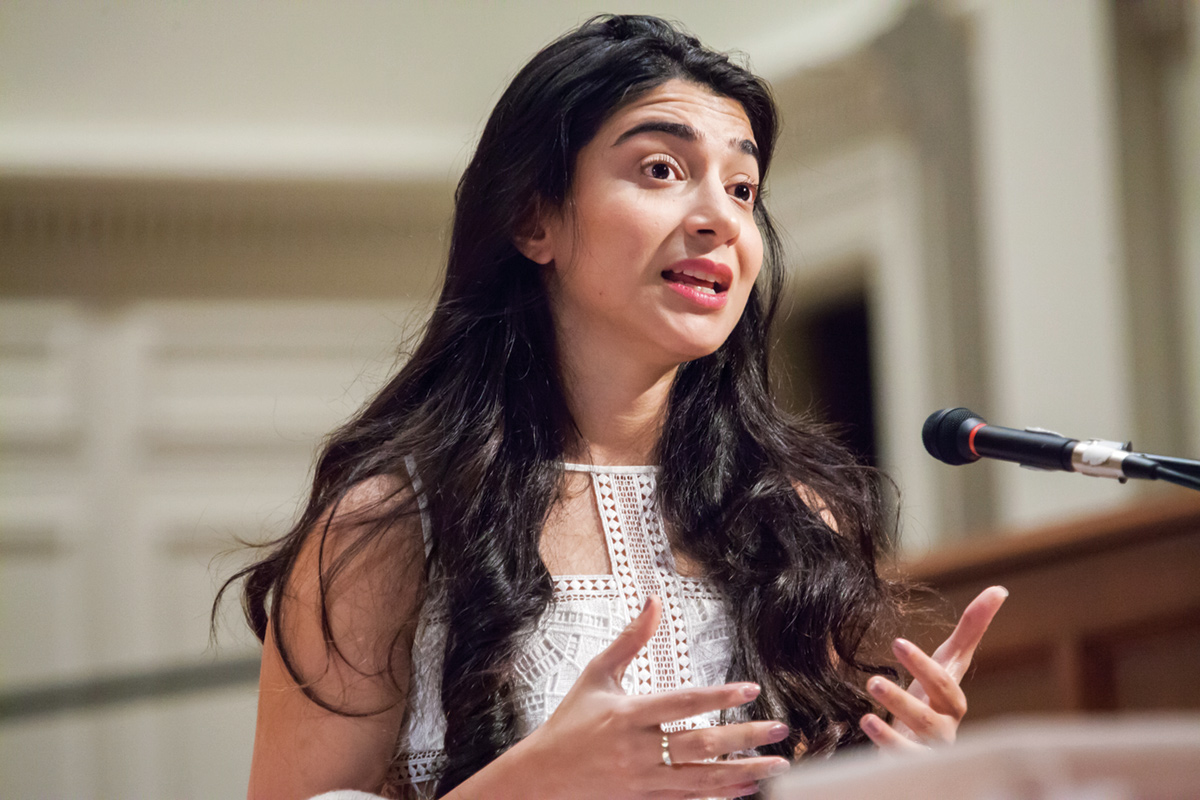Standing Up
The Emory Integrity Project finds its footing

Kay Hinton
Last summer, every Emory freshman received a copy of I Am Malala, the autobiography of girls’ education activist Malala Yousafzai. From a young age, Yousafzai dared to speak out for girls’ rights to an education in Pakistan, becoming a target for Islamic extremists.At age fifteen, she was shot by the Taliban. She survived and continued to advocate for girls’ education on an international scale, becoming the youngest winner of the Nobel Peace Prize.
The shared experience of reading Yousafzai’s story was part of the inaugural programming launched by the Emory Integrity Project (EIP) during the fall semester. The five-year project is a comprehensive effort to promote and develop a culture of ethics and integrity throughout Emory’s undergraduate experience through a program of cocurricular activities designed to challenge perspectives, encourage ethical reflection, and promote moral courage and principled action.
The project, initiated by a three-year, $2.6 million grant from the John Templeton Foundation and expanded to five years through university funding, invites students to engage with fundamental questions: What is integrity? What does it look like? How do we build a true culture of integrity at Emory?
In October, Shiza Shahid, cofounder of the Malala Fund, gave a lecture as part of the EIP about her experiences as a mentor to Yousafzai and how it led her to pursue social entrepreneurship.
“When I started a program to mentor young girls in Pakistan, I never could have imagined that one of those little girls would become one of the most powerful activists for women’s rights in the world,” she says. “It demonstrates how much power we have to create change in our own lives and the lives around us.”
Senior Neil Bhatia joined the EIP’s Student Integrity Ambassadors Council because he was intrigued with the idea of transforming Emory’s culture through concepts of integrity and ethics.
“There is no precedent for this type of organization and effort, so we are able to generate completely original ideas,” he says. “We have an opportunity to create something that is really influential in terms of conversations and dialogue and culture at Emory.”
Becka Shetty, assistant director for the EIP in Campus Life, says the curriculum focuses heavily on values identification, critical thinking about conflicts of integrity, and ethical decision making.
“Our goals have been to assist students in thinking more intentionally about who they are and who they want to be and how to align their actions with their values,” she says.


